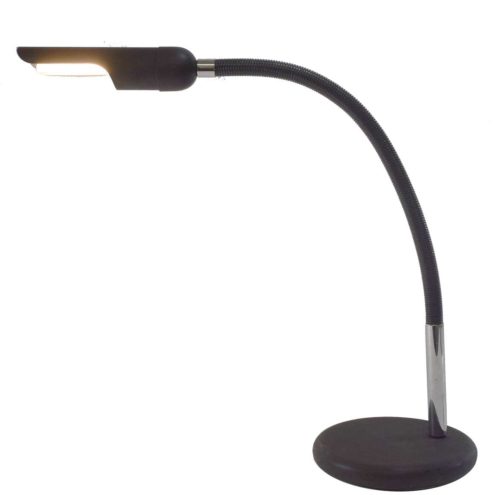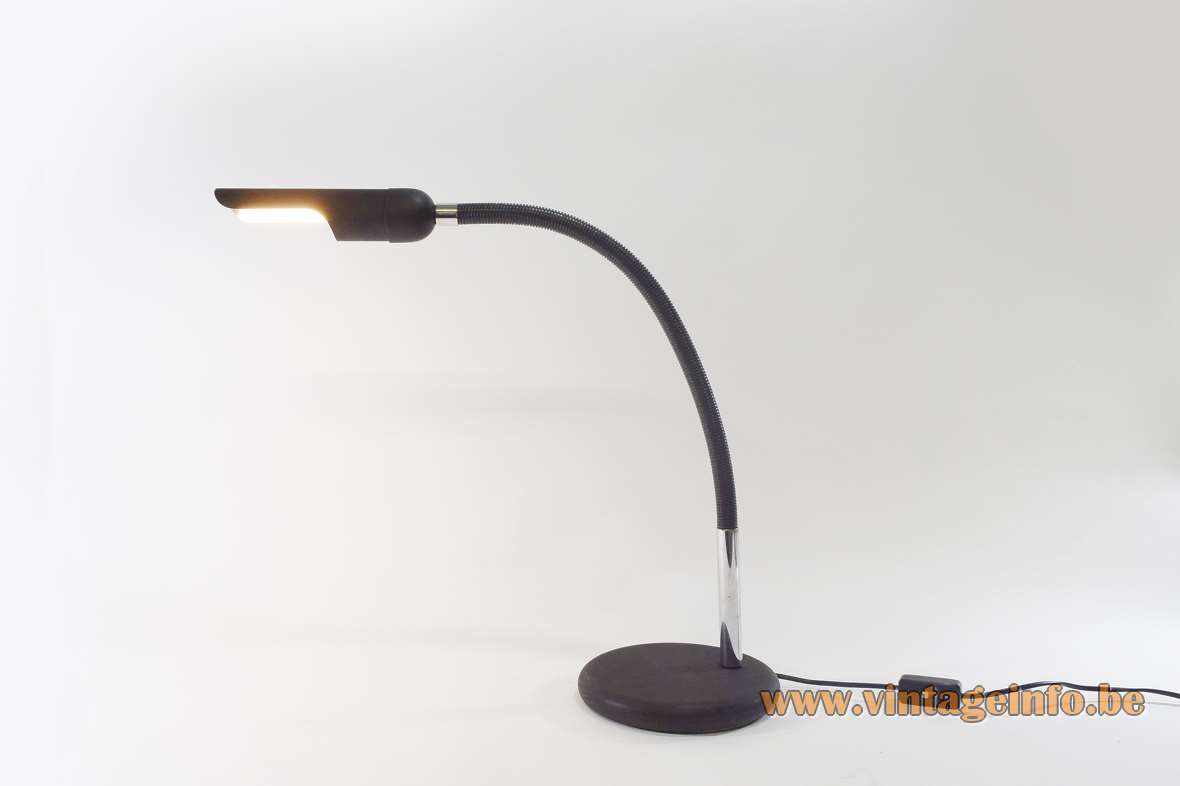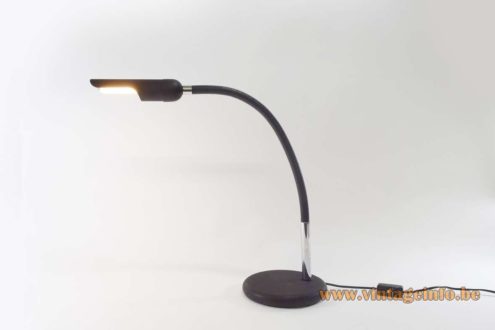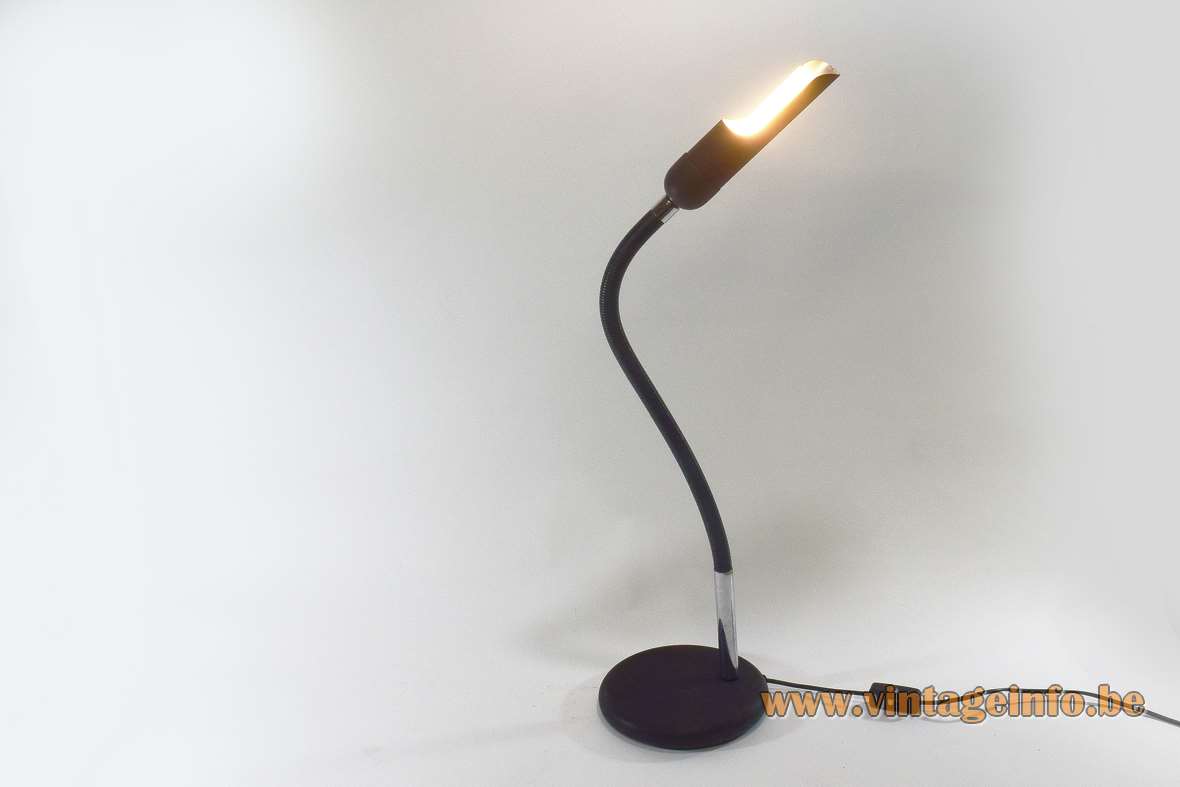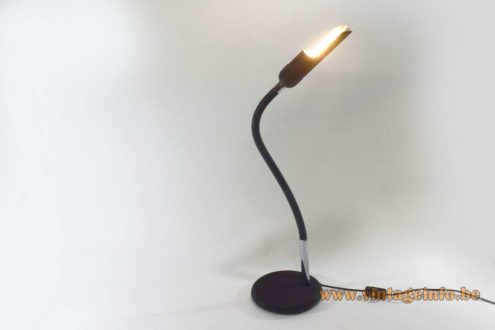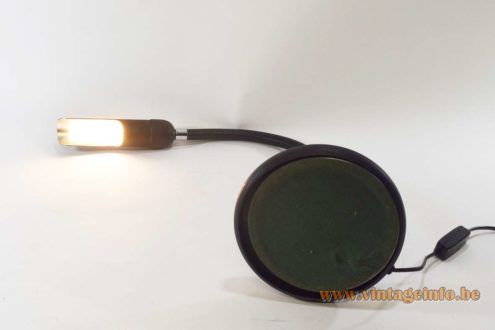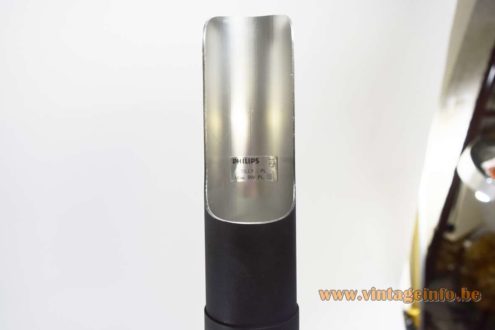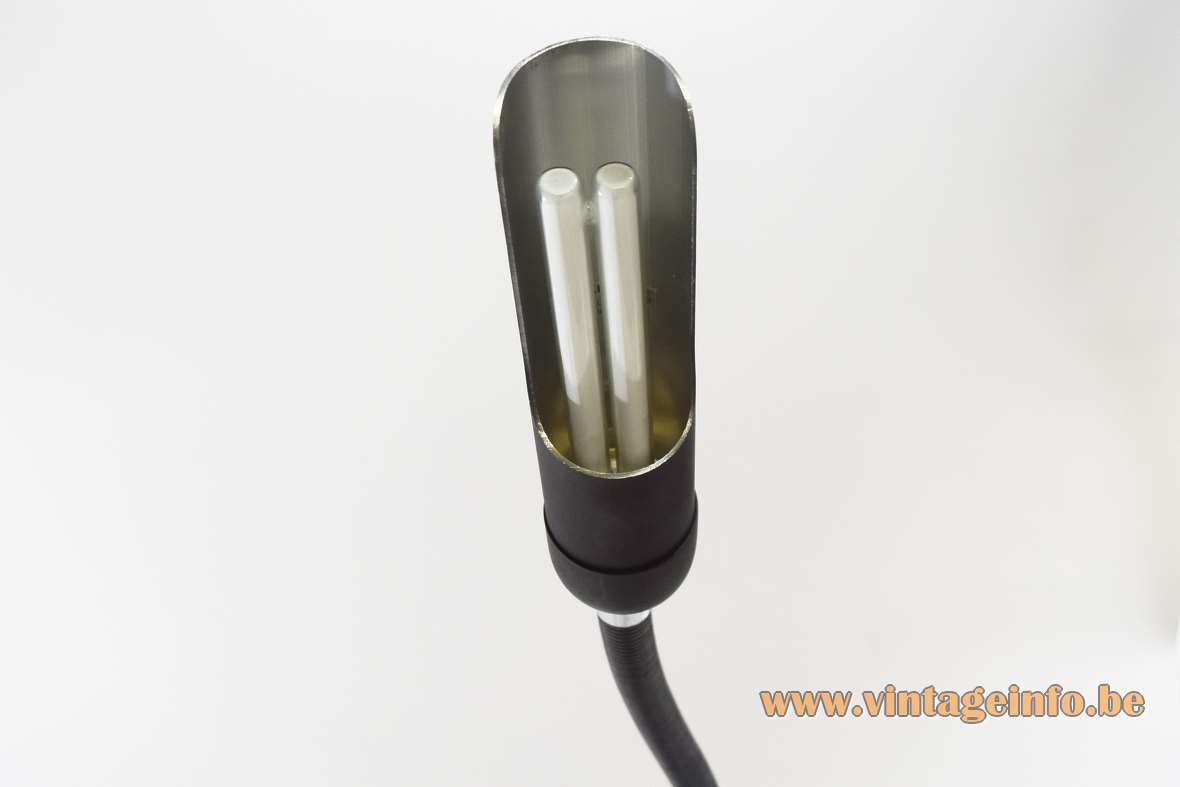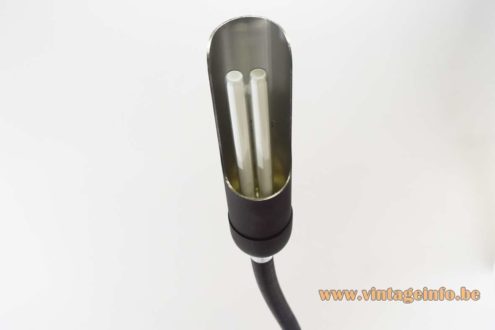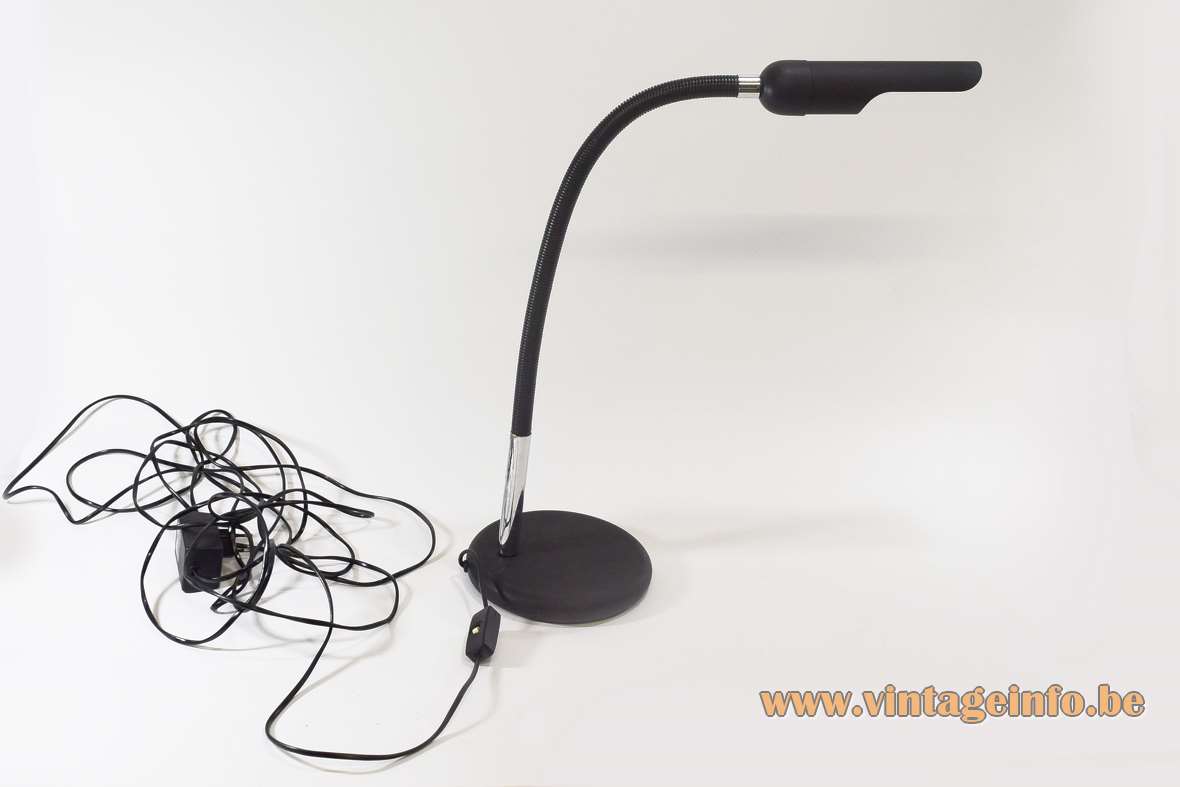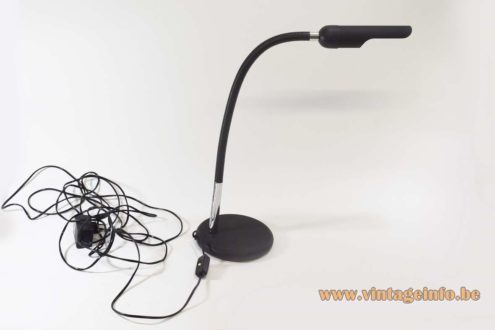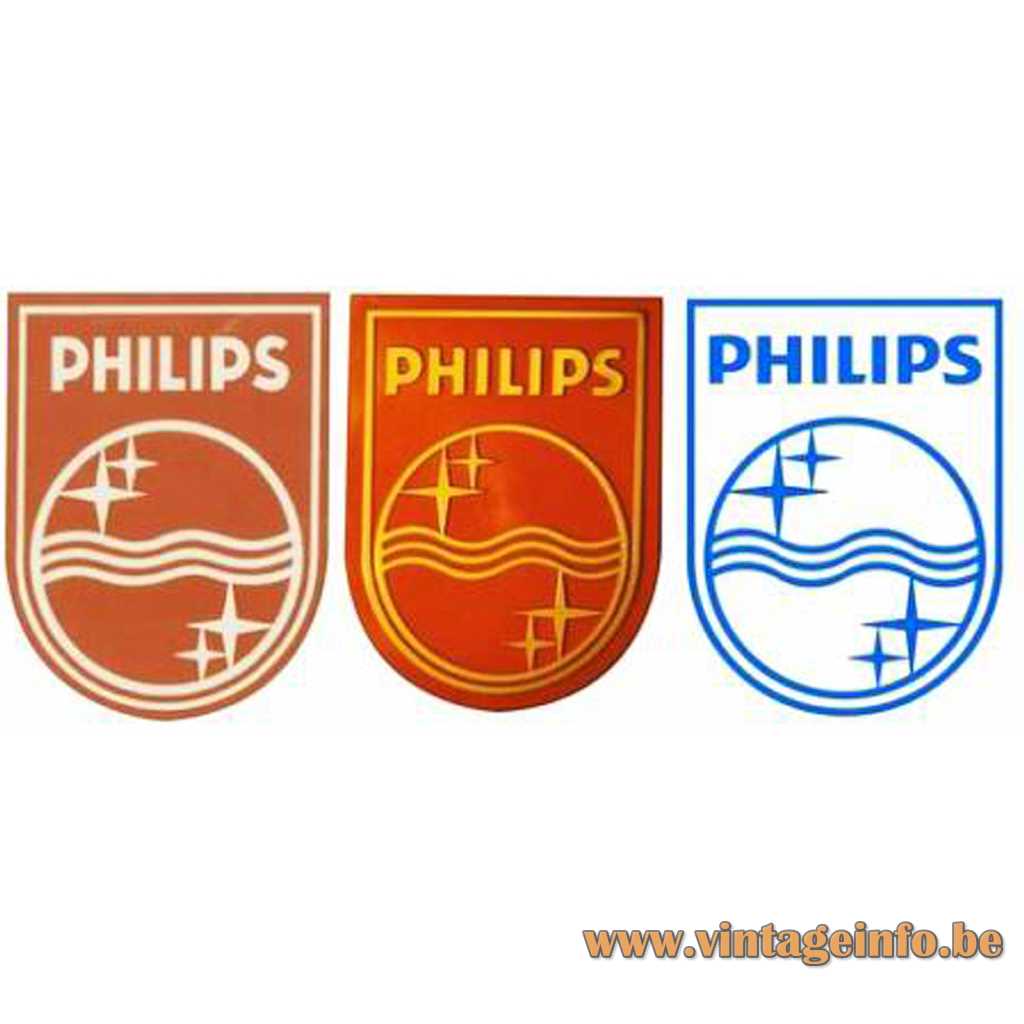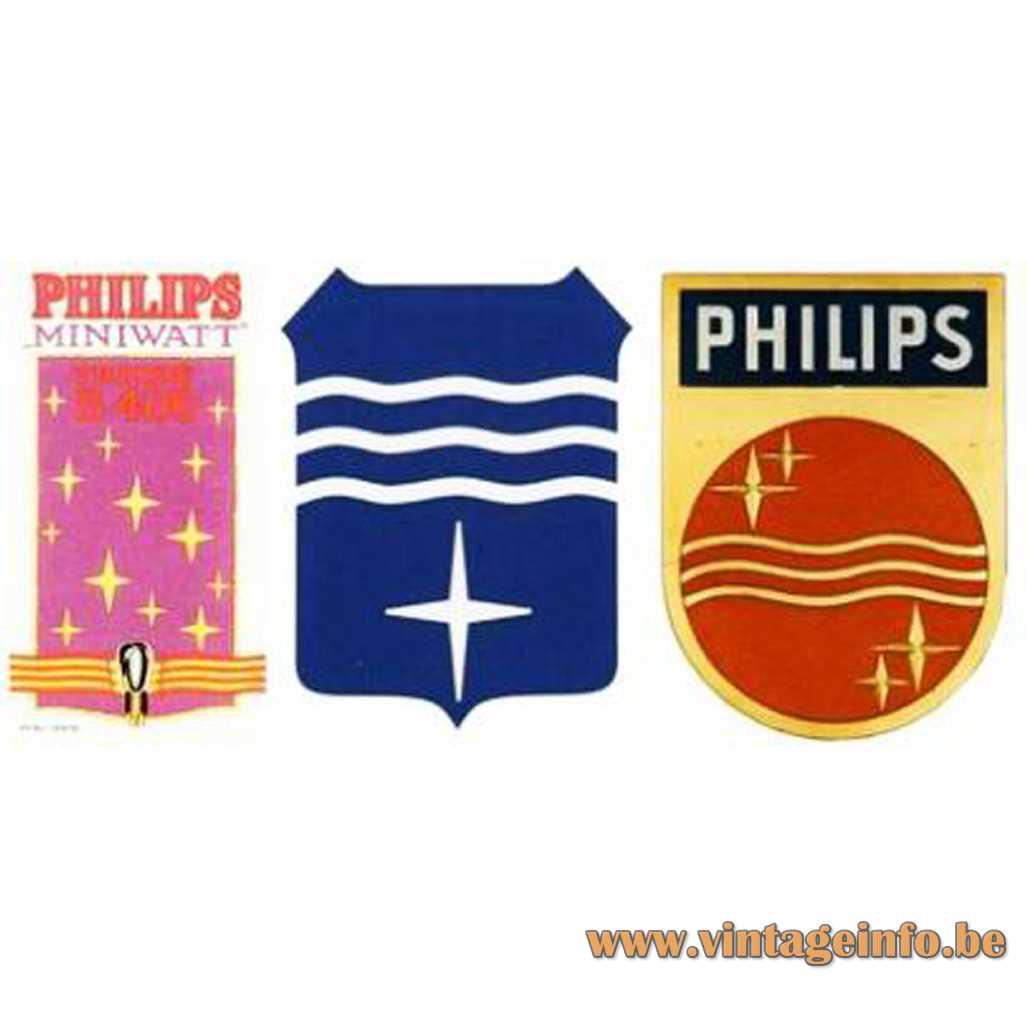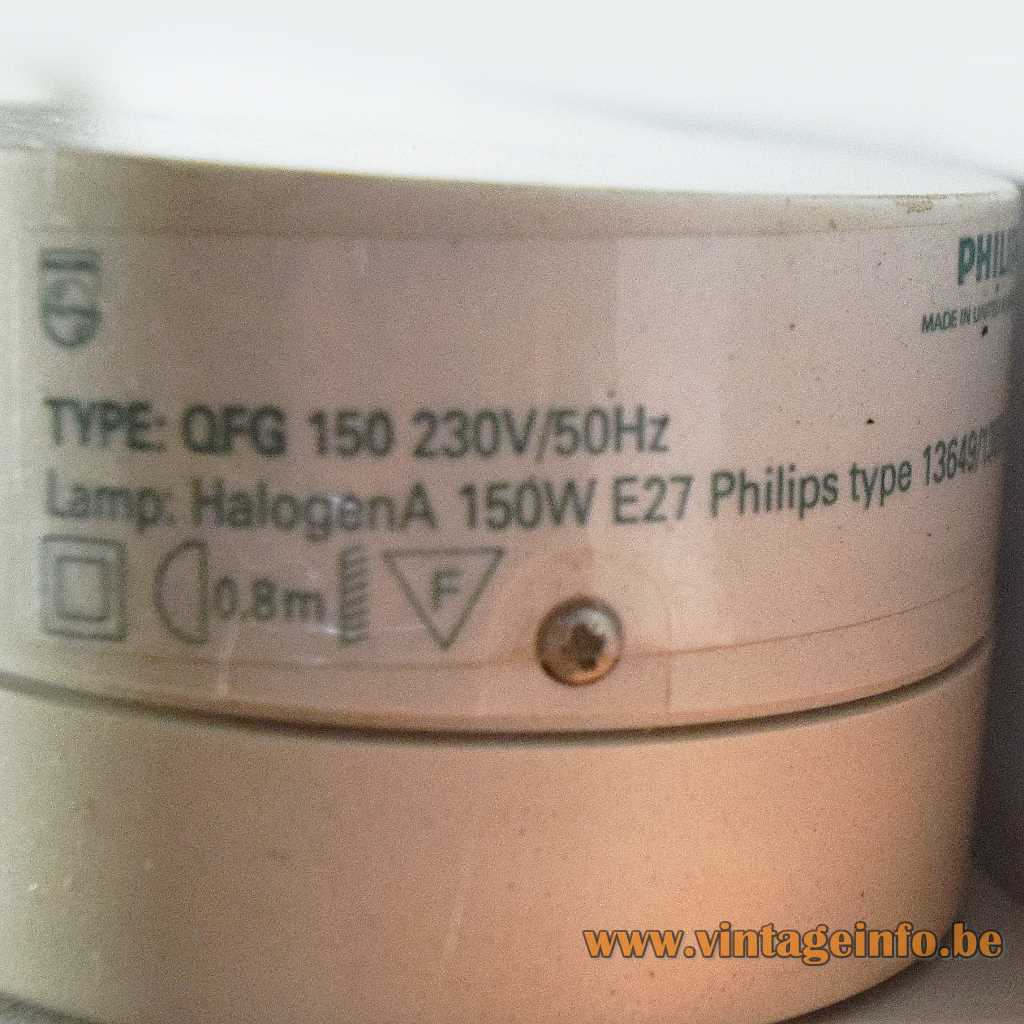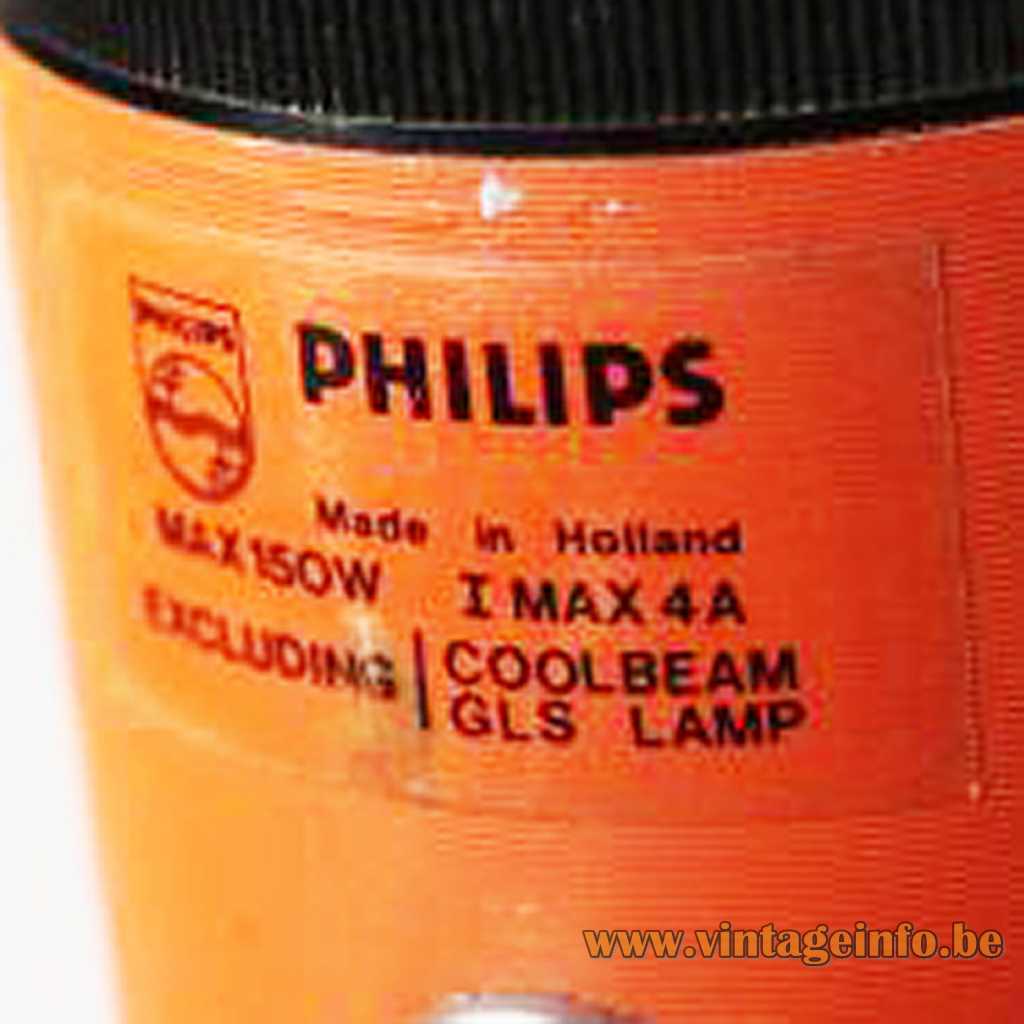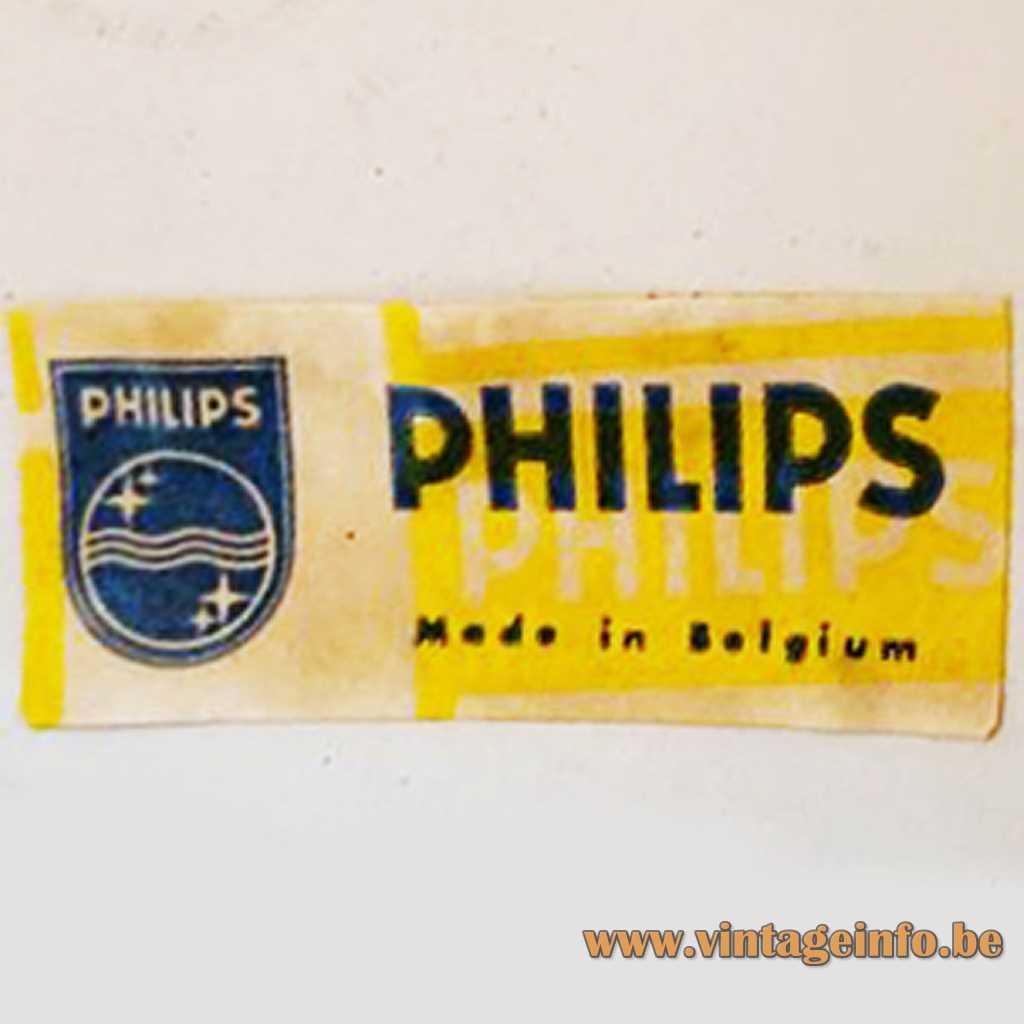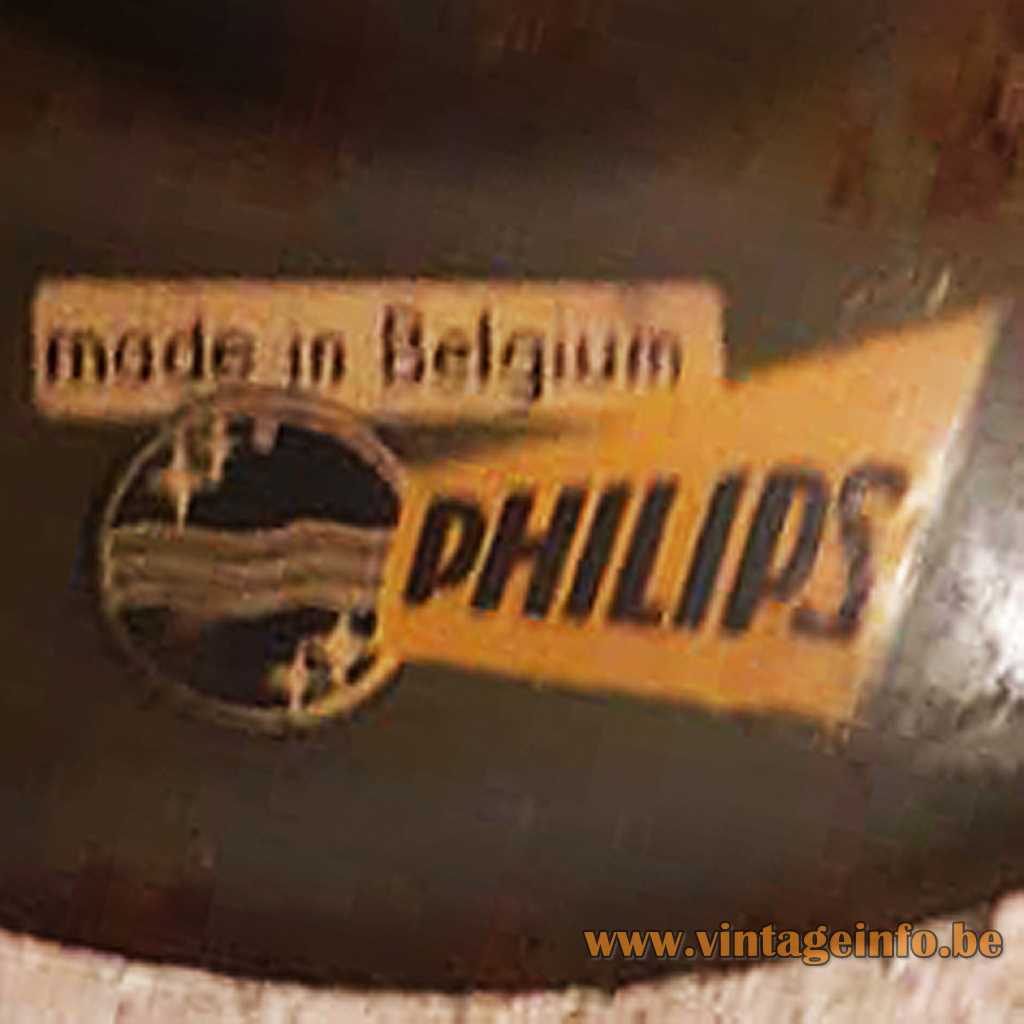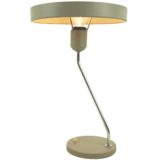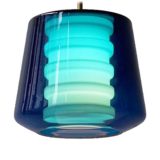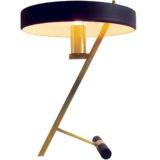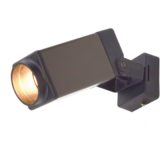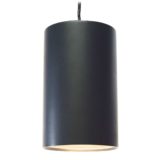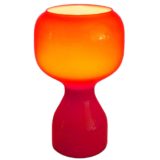Links (external links open in a new window)
The complete history of the company on the Philips website
The Evoluon building – Wikipedia
Website of the Philips Museum in Eindhoven
Compact fluorescent lamps history in the Smithsonian Museum
Compact fluorescent lamps – Wikipedia
Vintageinfo
Philips Theux desk lamp – another Philips lamp with a PL bulb from the same period
Philips Tilly Desk Lamp
Materials: Round mat black painted base. Iron counterweight inside the base. Felt on the bottom of the base. Mat black painted tubular lampshade, aluminium colour inside. Chromed rod. Long metal gooseneck in a black plastic tube. Plastic socket.
Height: 52 cm / 20.47” (adjustable)
Lampshade: ∅ 5 x 21 cm / 1.96 x 8.26”
Rod + Gooseneck: 62 cm / 24.40”
Base: ∅ 20 cm / 7.87”
Electricity: 1 bulb PL, 9 watt, 220 volt.
A compact fluorescent lamp (CFL) model PL-tube should be used. Today also a led version of this type of light bulb is in production. This desk lamp has the ballast outside on the plug. It has a wire of 3 meters, 118.11”.
Period: 1980s – Mid-Century Modern.
Designer: To be appraised.
Manufacturer: Koninklijke Philips N.V., Eindhoven, The Netherlands.
Other versions: This Philips Tilly desk lamp exists in several colours.
Compact fluorescent lamps
Compact fluorescent lamps (CFL) came on the market in 1981. Philips introduced two different versions and they are still in production today. The PL stands for Pi Lamp because the two connected tubes resembled the Greek character.
Koninklijke Philips N.V.
Inspired by the fast-growing electricity industry and by the promising results of Gerard Philips’ own experiments with reliable carbon filaments, his father, the Jewish banker Frederik Philips from Zaltbommel, financed the purchase of a small factory in Eindhoven, the Netherlands, on 15 May 1891.
The first years were difficult and the company was close to bankruptcy, but in 1895 Gerard’s younger brother Anton Philips joined the firm. With Anton’s commercial drive the family business expanded very quickly and the Philips brothers turned the lamp factory into the basis of what would become a major international electronics company.
To secure the supply of lamp parts, Philips very early started to make things in-house: its own machines, its own glass (from 1916) and even its own gas separation to fill lamps with argon, so it was less dependent on German suppliers during wartime. This strong vertical integration became typical for Philips and later also supported radio and medical products.
From the 1920s onward Philips did not only make lamps but also radios and even ran its own shortwave stations (PCJ and PHOHI) to promote them worldwide – an early mix of product and broadcasting.
In later sources the “first Philips shaver” is sometimes put in the early 1930s, but Philips itself dates the electric Philishave to 1939; in any case it shows how the company moved from lighting into small household and personal devices.
On 9 May 1940, the day before the German invasion, the Philips family left for the United States with a large part of the company’s capital. From there they continued operations as the North American Philips Company and kept control over the group during the war. After 1945 the headquarters returned to the Netherlands, again in Eindhoven.
After the war Philips became a broad technology group: radios, televisions, X-ray and medical equipment, and of course lighting, which remained one of its core businesses for decades. Only much later, in 2016, the lighting activities were split off and continued under the name Signify – all vintage Philips luminaires on this site belong to the period when lighting was still an integral part of Philips.
Today Philips is mainly a health-technology company. The roots are still in Eindhoven, but since 2025 the head office is in Amsterdam (Prinses Irenestraat 59).
